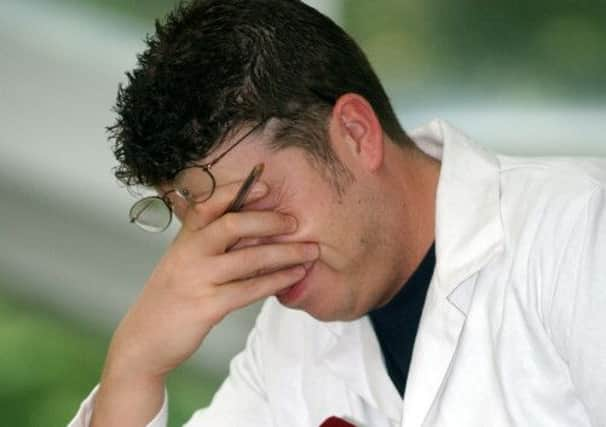‘Red tape and lack of time’ stopping NHS improvement


A survey by the British Medical Association, whose annual conference begins today in Edinburgh, found that two-thirds of doctors (67 per cent) said they had wanted to make changes or improvements in the last year.
But 89 per cent of medics said they had faced barriers when trying to make things better in the health service due to because of factors such as bureaucracy, lack of time and financial constraints.
Advertisement
Hide AdAdvertisement
Hide AdThe leader of Scotland’s doctors said it was a “great concern” that NHS staff felt held back in improving services for patients.
But the Scottish Government said it had worked with doctors to tackle bureaucracy and reduce workload.
Doctors from around the UK are meeting in the Capital this week to discuss major issues facing the medical profession as part of the BMA’s Annual Representative Meeting.
Debates will include the response to the inquiry into the Mid Staffordshire Hospitals scandal in the hope similar unnecessary deaths among patients will not be seen elsewhere.
Other issues to be discussed include workload pressures and the NHS reforms in England, as well as health inequalities and public health concerns such as alcohol misuse and junk food.
Ahead of the conference, the BMA’s study of almost 1,000 medics revealed many doctors had concerns about the effect their workload was having on their ability to improve the services they offered to patients.
Of those who said they had faced obstacles, the UK-wide survey found that the biggest barriers to making changes were lack of time and capacity (52 per cent), financial constraints (40 per cent), lack of managerial or organisational support (39 per cent) and too much bureaucracy (34 per cent).
The survey found that despite government commitments to work with the health professions to develop NHS services and give doctors more power, almost two thirds (65 per cent) of doctors said they felt less empowered than they did a year ago. Doctors in England in particular have expressed concerns about the way reforms have been imposed on them.
Advertisement
Hide AdAdvertisement
Hide AdWith financial pressures affecting NHS budgets, the vast majority of doctors (81 per cent) described work pressures as “high” or “very high”.
The biggest pressure was said to be dealing with patient activity levels.
GPs were most likely (89 per cent) to report very high or high levels of pressure.
The doctors questioned were also most likely to indicate being frustrated rather than encouraged in their work. But medics were more likely to give a positive response towards enthusiasm or motivation.
As the NHS nears its 65th anniversary, doctors said the things needed to keep the NHS going for another 65 years were greater integration between health and social care (48 per cent), better management of activity (44 per cent), and redesign and reconfiguration of hospital services (30.1 per cent).
Dr Brian Keighley, chairman of the BMA in Scotland said it was encouraging that despite the “relentless pressure” they faced on a day to day basis, many doctors remained enthusiastic and motivated about working in the NHS.
“But it is of great concern that doctors who want to drive changes to improve patient care or make services more efficient, feel there are barriers prohibiting that,” he said.
“Doctors work at the front-line of the NHS and see where pressure points are and how they can help to solve the problems.
Advertisement
Hide AdAdvertisement
Hide Ad“Doctors should be encouraged and supported, not left to fight their way through the bureaucracy that serves as a barrier to change for the better.”
Margaret Watt, chair of the Scotland Patients Association, shared the BMA’s concerns about improvements.
“If doctors have ideas about how to make services better for patients then we should support them. There must be better ways of doing things, but if you don’t get the time to do it then they fall by the wayside and we don’t want that,” she said.
Dr Mark Porter, chair of the BMA Council, said: “It is particularly worrying that the pressures so many doctors are experiencing on a daily basis appear to be getting worse.”